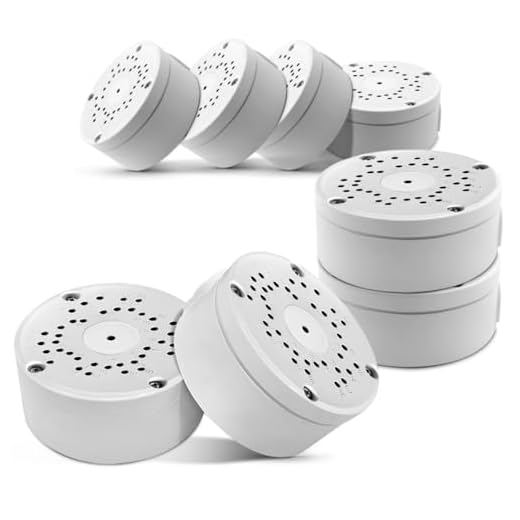




In today’s digital world, security cameras play a crucial role in keeping our homes and businesses safe. However, one of the most common issues faced by camera owners is the vulnerability of their connections to water damage. Moisture can seep into the cables and connectors, causing malfunctions or even permanent damage to the camera system. To prevent this from happening, it’s essential to properly waterproof your security camera connections.
Waterproofing your camera connections is a relatively simple process that can save you from costly repairs or replacements down the line. By taking the time to seal your cables and connectors, you can ensure that your security system remains operational, rain or shine. In this article, we’ll discuss the importance of waterproofing, the materials you’ll need, and step-by-step instructions on how to protect your camera connections.
Whether you’re installing new security cameras or looking to upgrade your existing system, waterproofing your connections should be at the top of your priority list. Don’t let water damage compromise the safety of your property – follow our guide to keep your security cameras secure and functioning effectively.
Protecting Your Security Camera Connections
One of the key steps in ensuring the longevity and effectiveness of your security camera system is to properly waterproof the connections. Moisture and water can damage the connections and compromise the functionality of your cameras. Here are some tips to help you protect your security camera connections:
1. Use waterproof connectors: Invest in high-quality waterproof connectors to ensure a tight seal and prevent water from seeping into the connections.
2. Seal the connections: Use silicone sealant or electrical tape to seal the connections and protect them from moisture.
3. Install weatherproof housing: Place your security camera connections in weatherproof housing to shield them from rain, snow, and other outdoor elements.
4. Regular maintenance: Inspect your connections regularly and replace any damaged connectors or seals to maintain the waterproofing.
By taking these steps to protect your security camera connections, you can ensure that your system remains reliable and functional for years to come.
Importance of Waterproofing
Waterproofing security camera connections is crucial to ensure the longevity and reliability of your surveillance system. Exposure to moisture can lead to corrosion, short circuits, and other electrical issues that can compromise the functionality of your cameras.
Protecting Against the Elements
By waterproofing the connections of your security cameras, you can protect them from rain, snow, humidity, and other environmental factors that can cause damage over time. This is especially important for outdoor cameras that are exposed to the elements.
Preventing Malfunctions
Water damage can lead to malfunctions in your security cameras, resulting in loss of footage or unreliable performance. Proper waterproofing can help prevent these issues and ensure that your surveillance system operates effectively at all times.
Steps to Waterproof Your Connections
Waterproofing your security camera connections is essential to ensure the longevity and reliability of your system. Follow these steps to effectively waterproof your connections:
- Use waterproof connectors: Invest in waterproof connectors that are designed to protect your connections from moisture and other environmental factors.
- Apply silicone sealant: Apply a generous amount of silicone sealant around the connection points to create a watertight seal.
- Use heat shrink tubing: Cover the connectors with heat shrink tubing and use a heat gun to shrink the tubing around the connections for added protection.
- Secure connections with waterproof tape: Wrap waterproof tape around the connections to provide an extra layer of protection against water infiltration.
- Position connections away from direct exposure: Whenever possible, position your connections away from direct exposure to rain or water sources to minimize the risk of water damage.
- Regularly inspect and maintain: Periodically inspect your connections for signs of wear or damage, and reapply waterproofing measures as needed to ensure continued protection.
Choosing the Right Materials
When waterproofing security camera connections, it is crucial to select the appropriate materials to ensure a reliable and long-lasting seal. Here are some key factors to consider:
1. Waterproof Sealant
Choose a high-quality waterproof sealant that is specifically designed for outdoor use and can withstand extreme weather conditions. Silicone sealants are a popular choice due to their flexibility and durability.
2. Waterproof Tape
Consider using waterproof tape to reinforce the sealant and provide an extra layer of protection against moisture. Electrical tape or self-amalgamating tape are good options for securing and insulating connections.
Common Mistakes to Avoid
When waterproofing security camera connections, it’s important to avoid common mistakes that can compromise the integrity of the system. Here are some key errors to steer clear of:
1. Not using the correct waterproofing materials: Using improper materials can lead to leaks and damage to the connections. Make sure to choose waterproof connectors, sealants, and tapes specifically designed for outdoor use.
2. Rushing the waterproofing process: Taking your time to properly seal and protect the connections is crucial. Rushing through the process can result in gaps or poorly sealed areas that can let water in.
3. Neglecting regular maintenance: Waterproofing is not a one-time task. It’s important to regularly inspect the connections and reapply waterproofing materials as needed to ensure continued protection.
4. Overlooking proper cable management: Poor cable management can lead to strain on the connections and potential damage over time. Make sure to secure and protect cables properly to prevent issues.
5. Ignoring environmental factors: Different environments can present unique challenges for waterproofing. Consider factors such as temperature fluctuations, UV exposure, and moisture levels when selecting waterproofing materials.
Tips for Long-Term Protection
When waterproofing security camera connections for long-term protection, consider the following tips:
| 1. Use high-quality waterproof connectors to ensure a secure and reliable connection. |
| 2. Seal the connectors with waterproof sealant or silicone to prevent water infiltration. |
| 3. Insulate the connections with heat shrink tubing to protect them from environmental factors. |
| 4. Regularly inspect and maintain the waterproofing to ensure continued protection. |







